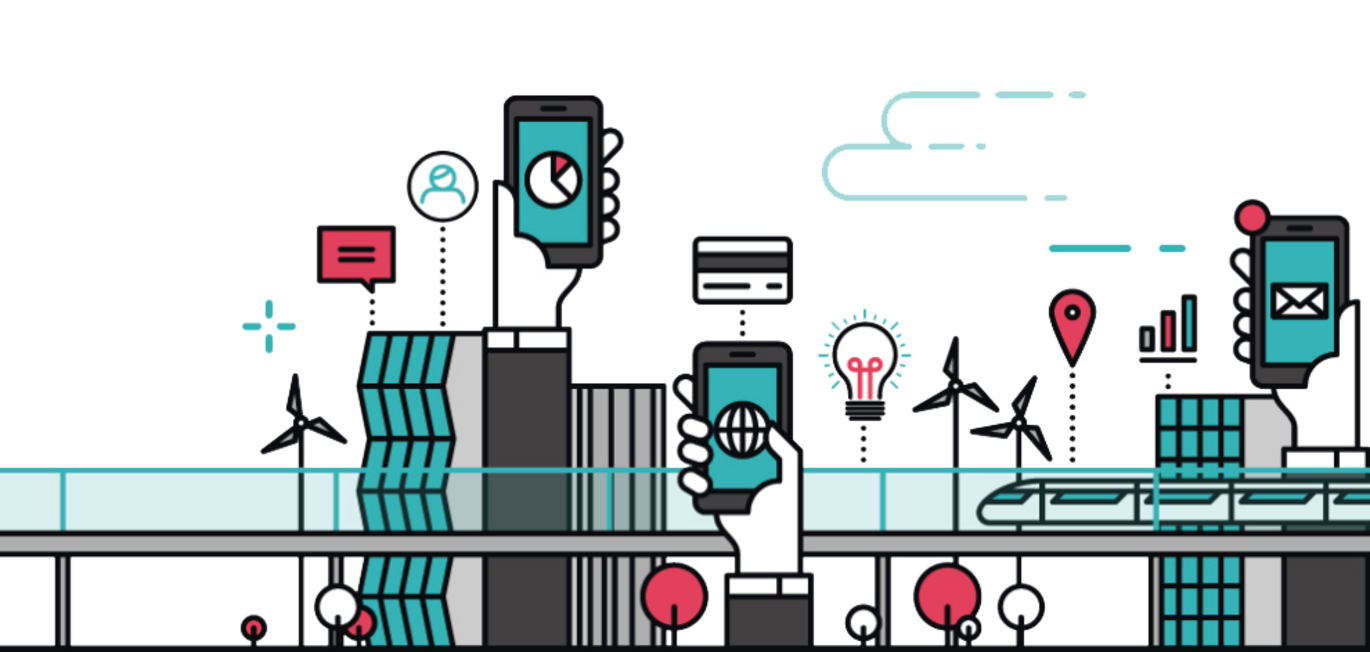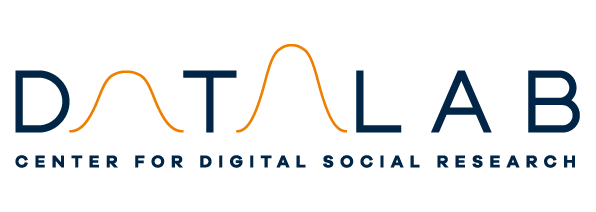Eight goals for a human-centric internet
As part of the European Commission’s Next Generation Internet initiative, DATALAB have selected eight key topics that will set out a vision for a better, more human-centric future internet and inform the initiative's policy and technology research agenda going forward.

In recent decades, there has been a revolution in the development of internet technologies across a wide range of fields, and all indications are that the technological progress is continuing at a rapid pace. These breakthroughs undoubtedly have a profound impact on society, and while they present significant opportunities, there are also complex dilemmas and challenges emerging around these new technologies.
Currently, the development of the internet technologies of the future is centralised around a few internet giants in monopoly-like positions on the global data market and, without an adequate response, humans risk losing control to data-driven, non-human-centric business models. It is the goal of the European Commission’s Next Generation Internet initiative to secure progressive development of internet technologies and policy that support the development of a more human-centric evolution of the Internet.
A mixed method approach to identify emerging challenges
Insights into emerging technologies and their corresponding challenges and opportunities can be of great value for European policy-makers in this process. Understanding these emerging challenge areas will allow policy-makers to become involved in shaping internet development early on to embed more human-centric values.
In collaboration with other partners in the H2020 project NGI Forward, DATALAB have identified a set of key topics that will be central in developing a more democratic, inclusive and resilient Next Generation Internet. These topics will form a clear focus through the initiative and inform NGI’s policy and technology research agenda going forward.
To identify the key NGI topics, we employed a mixed method approach that includes computational social science methods and expert workshops. In the first phase, DELab from University of Warsaw collected qualitative data from technology news articles and academic working papers to identify trending keywords related to the Internet in the broader public and research community respectively. In the second phase, DATALAB organised an expert workshop with leading stakeholders in the internet research community to help narrow down our areas of focus and verify or adjust the topics. Lastly, we synthesized the results to select eight key NGI topics
The chosen key NGI topics are technology-agnostic to prevent them falling out of relevance in the coming years and broadly interpretable and solution-agnostic to prevent predetermining specific solutions. The rapid technological development in the recent decades demonstrates that focusing on specific tools and technology may render topics obsolete within just a few years, while societal challenges are more likely to remain relevant and allow the EU to focus on a wider range of solutions beyond a predetermined technology.
The eight key NGI topics are as follows:
Trustworthy Information Flows
It is widely recognised that trustworthy information flows are essential for healthy democracies, but with social media and the Internet, content can spread much faster and in less moderated ways, challenging traditional information flows. The problem of online mis- and disinformation - often referred to as fake news - has evolved from a journalistic concern to one of the most urgent democratic issues in recent years. Despite major attention from the media, academia and governments, an effective solution is still not available. Coupled with other issues such as governmental censorship and large-scale content moderation by online platforms, information flows are changing rapidly, and further research is needed to explore different solutions that are sustainable and consider often conflicting values.
Decentralised Power on the Internet
The Internet was originally designed to be open and decentralised. But the de facto internet of today is controlled by a handful of giant companies with virtual monopoly control, acting as gatekeepers by enforcing policies on their users. However, visions for a more decentralised Internet are gaining traction - an Internet where humans can communicate without relying on big companies that collect data for profit. Some concepts for a decentralised Internet utilize distributed web and blockchain technologies to yield a more open and accessible Internet, while others focus on empowering people to publish and own content on the web outside centralised social media platforms. More research is needed into these solutions, both technical and socio-technical.
Personal Data Control
Recent revelations including the Cambridge Analytica scandal have made clear the lack of control we have over our own data, and the sheer amount of data collected online has created a major privacy concern. New approaches to privacy and data rights are needed to realise the societal and environmental potential of big data to connect diverse information and conduct rapid analysis - such as data sovereignty, data portability, and collective data rights. Achieving this will require research into the ways policymakers can fit these new concepts into existing data regulation frameworks in a way that offers individuals better control and authority, and builds public trust and engagement.
Sustainable and Climate-friendly Internet
The environmental impact of the Internet is enormous and growing rapidly. Each activity online comes with a small price in terms of carbon emissions and with over half the global population now online, this adds up. According to some estimates, the global carbon footprint of the Internet and the systems supporting it amounts to about 3.7 percent of the total carbon emissions, similar to the amount produced by the airline industry globally. As the Internet expands into new territory, it is estimated that the carbon footprint of the global internet technologies will double by 2025. Indeed, sustainability should be a bigger priority, and further insights are needed into how emissions could be controlled, how awareness of the environmental impact of the Internet can be raised, and how internet technologies can be utilized in the fight against climate change.
Safer Online Environments
People increasingly experience the internet as a hostile space. Cyberviolence in many shapes and forms is a growing concern, and it has a significant impact on an increasing number of people, LGBTQ+, ethnic minorities, women and children in particular. It will be vital for a more human-centric Internet to build safe online environments. For this to happen, a range of issues needs to be taken into consideration, including the role of social media providers and the protection of free expression. At the same time, solutions need to be investigated, such as effective moderation or containment procedures, creating useful aid for victims of cyberviolence and enabling law enforcement to take action against offenders.
An Inclusive Internet
The Internet offers a potential for inclusiveness in a global and diverse community, but if access is not evenly distributed, the Internet will deepen inequality. Half of the population of the world is still offline, urban areas are better connected than rural, and those that are connected in advanced ways may not be in a position to realise the full potential of the Internet to improve their lives and mitigate against critical issues. Many disabled people also are excluded from using online information and services, so inclusive infrastructures and tools are needed to remove barriers and create an inclusive and accessible Internet for all.
Competitive European Ecosystems
Today, the Internet is dominated by two narratives that give little agency to users: the American model, ruled by capitalist market powers with internet giants harvesting massive amounts of personal data to shape human behaviour, and the Chinese model characterised by mass surveillance and government control of the internet. These narratives cannot go unchallenged, and growth and innovation in the European tech industry without acquisitions from the U.S. and China-based companies is needed to support a competing narrative adhering to European values. This requires further research into possible policy and regulatory initiatives that can increase Europe’s competitiveness in the technology sector.
Ethical Internet Technology
Recent examples, such as Google's censored search engine developed for the Chinese market ('Project Dragonfly'), instances of algorithmic bias in criminal cases, racially targeted ads and “differential” pricing, and the use of Facebook data for voter manipulation, have shown that the Silicon Valley attitude of ‘moving fast and breaking things’ has failed miserably. With the rapid development of new technologies in the Internet of Things, Artificial Intelligence and Machine Learning, further research is needed in order to develop targeted ethical frameworks for the development and implementation of new technologies.

